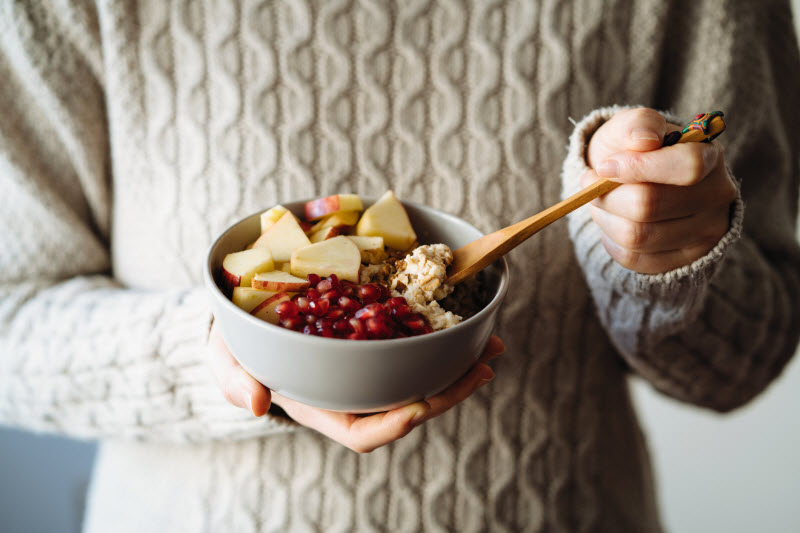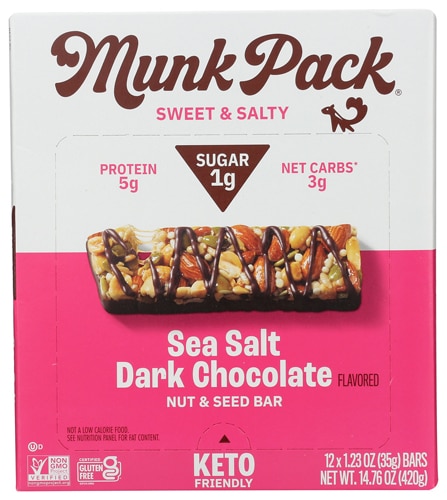[vc_row][vc_column][vc_column_text]Have you been shifting your diet towards more plant-based eating? If you’re concerned about getting enough protein, rest easy that there are dozens of delicious options for getting plentiful
protein from plants.
While tofu and tempeh are long-time staples of vegan diets, some lesser-known sources of plant protein may already be in your kitchen and can make putting healthy, plant-based meals on the table a pleasure.

How much protein do you actually need?
While there’s
not perfect consensus on how much protein we need, the current recommended daily allowance is .36 gram per pound of body weight, though some nutritionists think that’s lower than optimal. The
USDA has a calculator you can use to enter your height, weight, age, and activity level to determine your base-level protein requirements.
You’ll probably be surprised at how achievable that number is, even with the foods you’re already eating. That’s because most everyday foods – from bread to fruits and vegetables – all contain some protein in lesser or greater amounts. If you’re trying to get more protein, be sure to check out some of the richest sources below.
Top vegan protein sources to consider
Great grains (& pseudo-grains)
Beans may hog the vegan limelight, but grains – especially so-called ancient grains – have much to recommend them as protein sources. Especially when you need a break from beans, it’s comforting to know your next grain bowl or pasta dinner should have ample protein.
One of the highest-protein grains,
spelt can be used whole or ground in
spelt flour.
Spelt flakes can be made into a cooked breakfast cereal, while whole spelt berries add a nutty, chewy, protein-rich bite to soups and
grain salads.
Spelt is also one of the tastiest substitutes for white flour in baking, making it helpful if you’re trying to eat more nutrient-dense
whole grains. Try using whole-grain spelt flour in place of all-purpose flour in your favorite muffins, pancakes, breads, and other baked goods.
Another ancient grain,
kamut (or khorasan wheat) can be used
whole in similar ways to spelt, as can
sorghum. Try a
curried sorghum salad or pair sorghum with lentils in these
vegetarian sloppy joes. Or try using
teff in salads and soups.
Gluten-free and protein-rich subs for wheat flour,
sorghum flour and
teff flour can be used to make these
pumpkin crepes or other
teff temptations.
Even standard wheat breads and pastas have surprising amounts of protein.
Whole wheat pasta contains about 7 grams of protein per serving, and many whole-grain breads have upwards of 5 grams per slice, so that
peanut butter sandwich can pack a decent punch of protein.
For those trying to avoid gluten or grains, many popular
‘pseudo-grains’ are worth exploring. Quinoa, with 8 grams of protein per cup, has gotten a lot of hype, but amaranth (9 grams per cup) and buckwheat (6 grams per cup) are also excellent choices.
Wild rice is a naturally gluten-free seed that has double the protein of white rice, 6.5 grams per cup. Flavorful on its own as a
side dish, or combined with seasonal produce in a
salad or hearty soup, wild rice deserves a regular place in your meal plan.
Super seeds & nutritious nuts
Many seeds and nuts contain plentiful protein. Whether you grab a handful for a snack, add them to salads, or whir them into
allergy-friendly seed butter, they’re a handy way to
add protein and other nutrients with very little effort.
With 10 grams of protein per cup,
hemp is a seed to keep on hand for adding protein to smoothies, baked goods, sauces, and more. Try it in a
protein-rich smoothie, indulgent
vegan ‘nice’ cream, savory
vegan ‘burgers’ or make a
hemp butter. Here are additional
ways to use hemp.
Chia seeds, whether in a
chia pudding or a
nourishing breakfast bowl, add 6 grams of protein per 2 tablespoon serving, as well as minerals, omega-3s, and a pleasant heft to whatever you toss them into. Try adding
ground chia to baked goods or your
favorite smoothie to up the protein of whatever you’re making. Or check out some of these
other creative ways to use chia.
Containing up to 11 grams of protein per quarter-cup serving,
pumpkin seeds are a delicious way to add protein to salads, smoothie bowls, and baked goods. They’re also a budget-friendly sub for pine nuts in your favorite
pesto recipe.
Sunflower seeds contain 7 grams of protein per serving and are also excellent sources of
valuable nutrients including copper, vitamin E, and magnesium.
Sunflower seed butter is a popular nut-free substitute for peanut butter and can be used in any recipe calling for peanut butter, like these
no-bake sunflower butter protein bars.
Combine these protein-rich seeds in
homemade snack mix or
pumpkin seed chia pudding, or slather some
5-seed butter on your toast in the morning.
You can also find multiple sources of vegan protein combined in a
protein powders perfect for popping into smoothies or
energy bites.
Get leguminous (& bake with beans!)
While most of us know that legumes like
lentils,
peas, and
beans are excellent sources of vegan protein, not everyone has caught on to how versatile these pantry staples are.
Yes,
vegan chili,
lentil soup, or
red beans and rice are rich in protein, but have you tried protein-rich
chickpea flour? In addition to using it in your favorite muffin recipes, try making cookies with chickpea flour or dig into some indulgent chocolatey
black bean brownies.
Swapping wheat pasta with one made with
garbanzos,
lentils,
black beans or other protein-rich legume can also significantly increase the protein of your dinner. This
edamame and spirulina spaghetti packs 24 grams of protein per serving!
Quick-cooking red lentils make
nourishing soups as well as an easy homemade hummus. Many other protein-rich legumes
can also be used for hummus, like black or white beans, as well as the traditional chickpeas. You can get some extra protein with dessert when you dig into
chocolate dessert hummus.
Don’t forget that
peanuts are also legumes and can add protein to treats, your morning toast, or
trail mix.
Nosh on nooch and sip spirulina
Though you’re unlikely to eat them daily the way you might some of the common foods above, working in some nutrient-dense and protein-rich ingredients like vibrant
spirulina (4 grams per tablespoon) and savory
nutritional yeast (2 grams per tablespoon) can help expand your protein options.
Toss a spoonful of spirulina in your smoothie and slather your pasta in
vegan ‘cheese’ sauce with nooch and you’ve amped up the protein content of two meals. Or dig into some
vegan spinach dip, featuring protein-rich ingredients tofu, spinach, and nutritional yeast.
Nutritional yeast is also delicious on
popcorn, adding umami flavor, protein, and B-vitamins to this healthy snack.
With so many exciting and tasty ways to get vegan protein, it’s easy to get more than enough protein on a plant-based diet.[/vc_column_text][/vc_column][/vc_row][vc_row][vc_column][vc_text_separator title="Featured Products" border_width="2"][vc_row_inner equal_height="yes" content_placement="middle" gap="35"][vc_column_inner width="1/3"][vc_single_image image="164837" img_size="full" alignment="center" onclick="custom_link" img_link_target="_blank" css=".vc_custom_1676138058466{padding-right: 7% !important;padding-left: 7% !important;}" link="https://www.vitacost.com/beanvivo-three-bean-vegan-chili"][/vc_column_inner][vc_column_inner width="1/3"][vc_single_image image="164838" img_size="full" alignment="center" onclick="custom_link" img_link_target="_blank" css=".vc_custom_1676138077168{padding-right: 7% !important;padding-left: 7% !important;}" link="https://www.vitacost.com/bragg-nutritional-yeast"][/vc_column_inner][vc_column_inner width="1/3"][vc_single_image image="164839" img_size="full" alignment="center" onclick="custom_link" img_link_target="_blank" css=".vc_custom_1676138096995{padding-right: 7% !important;padding-left: 7% !important;}" link="https://www.vitacost.com/oats-over-night-shake"][/vc_column_inner][/vc_row_inner][/vc_column][/vc_row]




